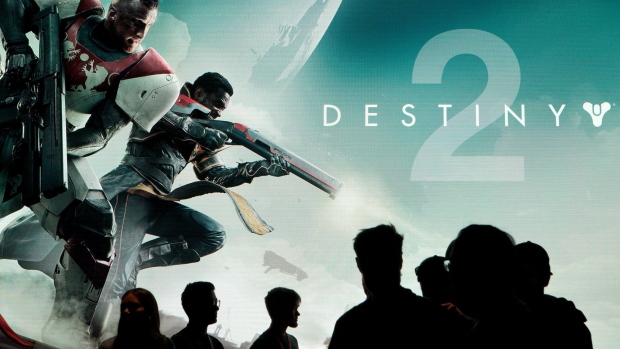Jan 31, 2022
Sony Buys ‘Destiny’ Game Developer Bungie for $3.6 Billion
, Bloomberg News

(Bloomberg) -- Sony Group Corp. is purchasing Bungie Inc., the U.S. video game developer behind the popular Destiny franchise, for $3.6 billion to bolster its stable of game-making studios.
The deal announced on Monday is the third significant video-game acquisition announced this month, following Microsoft Corp.’s purchase of Activision Blizzard for $69 billion two weeks ago and Take Two Interactive Corp. snagging mobile game leader Zynga Inc. on Jan. 10. Buying Bungie will give Sony one of the most popular first-person shooter games to compete with the massive Call of Duty series, which Sony’s main rival now owns through Activision.
Microsoft is committed to releasing at least the next three Call of Duty games on Sony’s PlayStation, Bloomberg News has reported. But eventually Microsoft could decide to take the series exclusively to its Xbox console and Windows computers, and Sony may see Destiny as its response.
Sony is a regular acquirer of video game studios, though Bungie is by far its largest of the past decade. The Japanese entertainment and technology giant typically buys less established studios and enhances them with marketing and development resources, as it did for Naughty Dog and Guerrilla Games. Sony also holds minority stakes in some bigger game companies, such as Epic Games Inc., the maker of Fortnite. In recent years, Sony has made some smaller acquisitions, notably Burbank, California-based Insomniac Games in 2019 and Finland’s Housemarque, aiming to bolster its library of PlayStation exclusives.
While Microsoft has focused on packing its subscription service, Xbox Game Pass, full of games big and small, Sony’s blueprint is to develop large blockbusters and keeping them exclusive to PlayStation -- a strategy that helped the PlayStation 4 sell more than 116 million units, well ahead of the Xbox.
Bellevue, Washington-based Bungie, founded in 1991, helped put the Xbox on the map with the Halo franchise and was purchased by Microsoft in 2000. In 2007, the studio negotiated its independence and spun out from Microsoft to work on its next big thing, Destiny, with Activision. That relationship ended in 2019 and Bungie began self-publishing and operating Destiny independently.
Destiny functions differently than many other franchises. Rather than release a regular cadence of sequels, Bungie decided to continue operating and expanding the most recent game, Destiny 2. The base game is free-to-play, while Bungie regularly releases expansions and season passes full of new content. The move has been popular, drawing in more than 20 million players since 2019, according to Bungie.
©2022 Bloomberg L.P.





